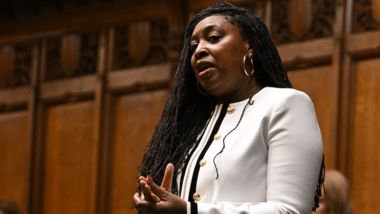Influencers and celebrities are fuelling child gambling, an industry-funded charity has warned.
GambleAware urged policy makers to address gambling advertisements on social media, following research showing that almost 90 per cent of 13-17 year olds have seen gambling promoted online.
Problem gambling among children aged 11-18 doubled between 2023 and 2024 – equating to around 85,000 young people nationwide. The minimum age to be permitted to gamble in the UK is 18.
Unprecedented levels
The research, commissioned by GambleAware, found: “87% of children and young people who took part in a survey said they have been exposed to gambling content online, with more than one in six (16%) having seen content creators advertise gambling.”
A quarter of the children and young people surveyed “said they have been tempted to spend money gambling after seeing a celebrity gambling or advertising gambling”.
For boys aged 16-17, 36 per cent said they participated in gambling “after seeing a celebrity promoting or taking part in gambling”.
It concluded: “Children and young people across Great Britain are being exposed to gambling content at unprecedented levels, often through celebrities and influencers on popular social media platforms.”
Normalising gambling
Researchers spoke to a range of young people about viewing gambling content online. One respondent said: “I usually see stuff like this daily. I’m on TikTok every day and see something like that”.
Another explained that young people don’t need to be searching for gambling content “It can just come up in your feed in general. This has happened to me a few times.”
Niks Kolosnicins, 24, became addicted to gambling while still in school. He said: “I used to see a huge amount of gambling ads when watching online streamers and esports – and with my favourite influencers promoting gambling, and many of my friends regularly betting, gambling became normalised for me.”
Escalating harms
Labour MP Beccy Cooper said that the current laws were “failing to protect children from online gambling marketing where influencers portray gambling as socially acceptable or aspirational”. Don Foster, a Liberal Democrat peer, called the report’s findings “extremely concerning”.
Glasgow University’s Heather Wardle, Professor of Gambling Research and Policy, said gambling content seen by children can cause betting to become “embedded deeply within social practices”.
She continued: “Evidence shows there is a real risk of escalating harms among this already higher-risk age group”.
Urgent action
The CEO of GambleAware, Zoë Osmond, explained: “Digital technology has transformed how children and young people consume content, with mobile phone ownership widespread and many spending hours daily on social media.
“Social media platforms and influencers now play a pivotal role in shaping attitudes and behaviours and this research shows that some are playing a part in encouraging young people to gamble.
“It is unacceptable that children’s environments continue to be flooded with age-restricted content. Consistent exposure to influencer-driven gambling content contributes to the normalisation of gambling amongst school aged children and we know that early exposure to gambling at a younger age can lead young people to have a higher risk of experiencing gambling harm later in life.”
She called for urgent action to be taken so that Government policies “catch-up with the digital age”.

MPs, Peers and campaigners call for gambling reform at summit
Brent MP launches campaign against high street betting shop onslaught
Woman convicted of £2.4m gambling fraud
GambleAware school resources ‘may encourage children to bet’

